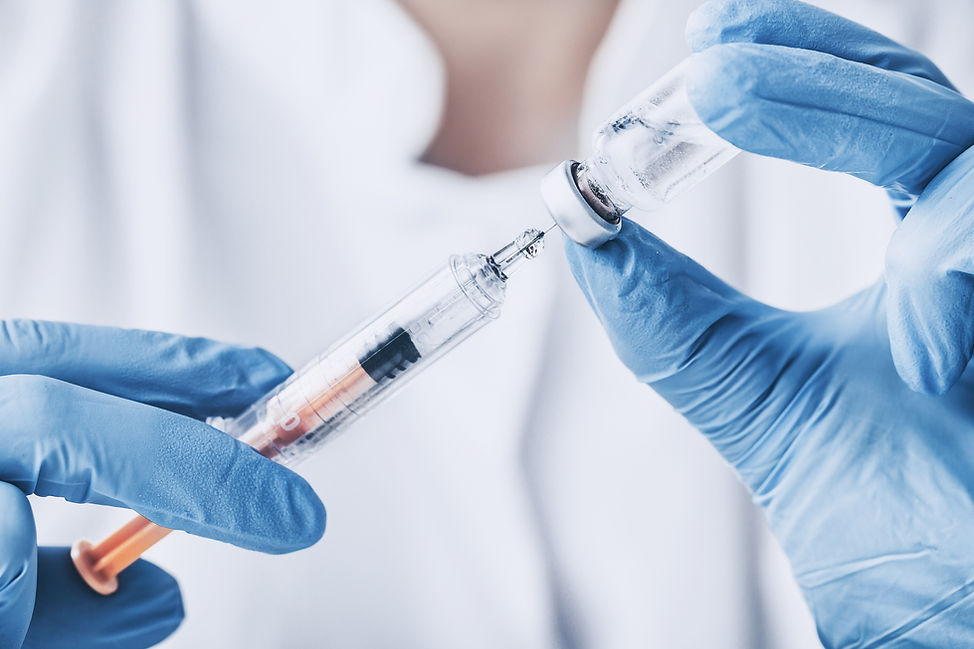
As of August 28, 2025, the FDA has approved updated COVID-19 vaccines (Moderna, Pfizer-BioNTech, Novavax) targeting the LP.8.1 lineage. Eligibility is restricted to adults aged 65 and older and to children and adults with high-risk conditions (e.g., chronic lung disease including asthma, diabetes, obesity, cancer, pregnancy, immunocompromise). Broader use in healthy individuals under age 65 is not authorized at this time.
The CDC has not yet issued updated recommendations, which creates uncertainty for providers, patients, and insurers regarding access, eligibility, and coverage.
Based on the recommendations of infectious disease specialists and other peers across the spectrum, the consensus is to proceed cautiously and align with current FDA eligibility. This is the approach I intend to follow in my own practice.
Key Recommendations for Physicians
1. Clinical Approach
-
Align practice with FDA-labeled eligibility (≥65 and high-risk groups).
-
While broader vaccination may ultimately provide benefit, liability, insurance coverage, and operational risks argue against use outside FDA parameters until CDC/ACIP guidance updates.
-
Monitor closely for statements from AAP, ACOG, ACP, and IDSA, as these frequently shape payer policy and the standard of care.
2. Handling Patient Requests Outside Criteria
-
Avoid off-label administration outside FDA eligibility until CDC/ACIP and insurers clarify guidance.
-
In the interim, practices should:
-
Document counseling and risk discussion with patients requesting the vaccine.
-
Offer timely alternatives (influenza, RSV vaccination)
-
Reinforce non-pharmacologic strategies: masking during surges, ventilation, hygiene, test-to-treat readiness.
-
Maintain a waitlist of patients to notify if eligibility expands.
-
3. Patient Messaging
-
Eligibility: “Currently, updated COVID-19 vaccines are for those 65+ or with qualifying health conditions. Please ask us if you are unsure.”
-
Benefits: Protection against severe illness and hospitalization, tailored to LP.8.1. Complements flu and RSV vaccination.
-
Risks: Similar safety profile to prior doses; rare serious adverse events remain uncommon. Continue using VIS sheets once CDC updates.
-
Timing: Defer vaccination ~3 months post-infection; individualize for immunosuppressed. Pregnancy qualifies as high-risk and should be emphasized.
4. Insurance & Coverage
-
Medicare: Part B covers eligible groups at no cost.
-
Commercial/Medicaid: Coverage for healthy <65 remains uncertain until CDC updates.
-
Best practice steps:
-
Maintain a payer policy matrix updated weekly.
-
Perform pre-authorization or real-time eligibility checks.
-
Document medical necessity for high-risk under-65 patients.
-
Be prepared to quote a cash price (~$100/dose) if needed.
-
Monitor payer bulletins closely—coverage usually aligns quickly once CDC issues guidance.
-
5. Operational Playbook for Practices
-
EHR & Policy: Activate age/diagnosis prompts; suppress universal COVID alerts until CDC guidance updates.
-
Scheduling: Prioritize elderly, immunocompromised, pregnancy, cardiopulmonary disease, diabetes, obesity.
-
Documentation: Record eligibility, counseling, product/lot details, payer policy references.
-
Billing: Use FDA-labeled codes with linked diagnoses; follow CMS toolkit for Medicare.
-
Communications:
-
Update practice website and patient portal with clear eligibility messaging.
-
Provide a one-page patient handout (eligibility, rationale, safety, coverage).
-
Be prepared to update messaging rapidly when CDC/ACIP issues new guidance.
-
Final Perspective
At this time, and in line with the consensus of infectious disease specialists and peer practices, I am:
-
Prioritizing high-risk groups in accordance with FDA eligibility.
-
Avoiding liability and coverage pitfalls by not vaccinating outside current labeling.
-
Communicating clearly and consistently with patients to maintain trust.
-
Staying agile and prepared, knowing recommendations and coverage may shift quickly once CDC/ACIP guidance is released.
By adopting this unified, evidence-based, and operationally cautious approach, we can safeguard our patients now while being ready to pivot as public health recommendations evolve.
About the Author:
Ashish Sachdeva, MD, is an experienced internal medicine physician with more than 35 years of clinical practice in both acute and chronic care across 3 different countries, India, South Africa and the USA. He is the founder of Pinnacle Care Internal Medicine in Peoria, Arizona, a seven-day clinic dedicated to providing comprehensive primary care with an emphasis on not only physical health, but also the mental, emotional, and spiritual well-being of patients. Recognized for his compassionate, patient-centered approach, Dr. Sachdeva has been listed in Top Doctors magazine for five consecutive years.
Dr. Sachdeva earned his medical degree from Mahatma Gandhi Institute of Medical Science in Wardha, India, and trained in New Delhi before practicing trauma surgery and emergency medicine in South Africa. He completed his internal medicine residency at Saint Joseph Hospital in Chicago, affiliated with Northwestern University, where he served as Chief Resident and Clinical Instructor of Medicine. He went on to complete a fellowship in geriatric medicine at Indiana University–Purdue University Indianapolis (IUPUI), where he also held a faculty appointment as Clinic Instructor of Medicine.
Outside of his medical practice, Dr. Sachdeva enjoys traveling, singing, writing, and playing pickleball, as well as spending time with his wife, Dr. Namita Sachdeva, and their three children.
COVID-19 Vaccine Update: Recommendations for Clinical Practice
By Ashish Sachdeva, MD






